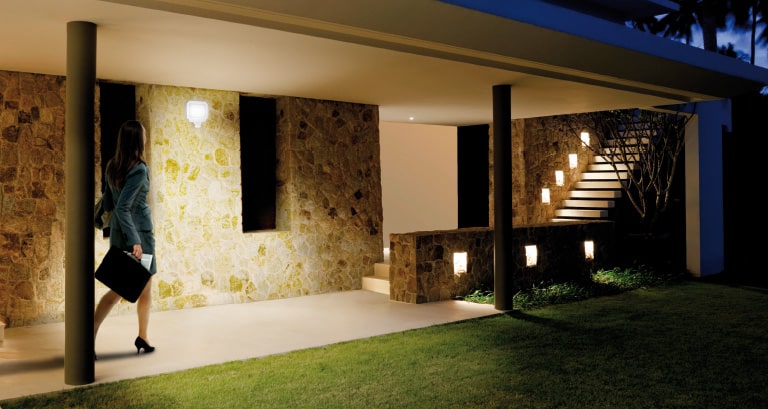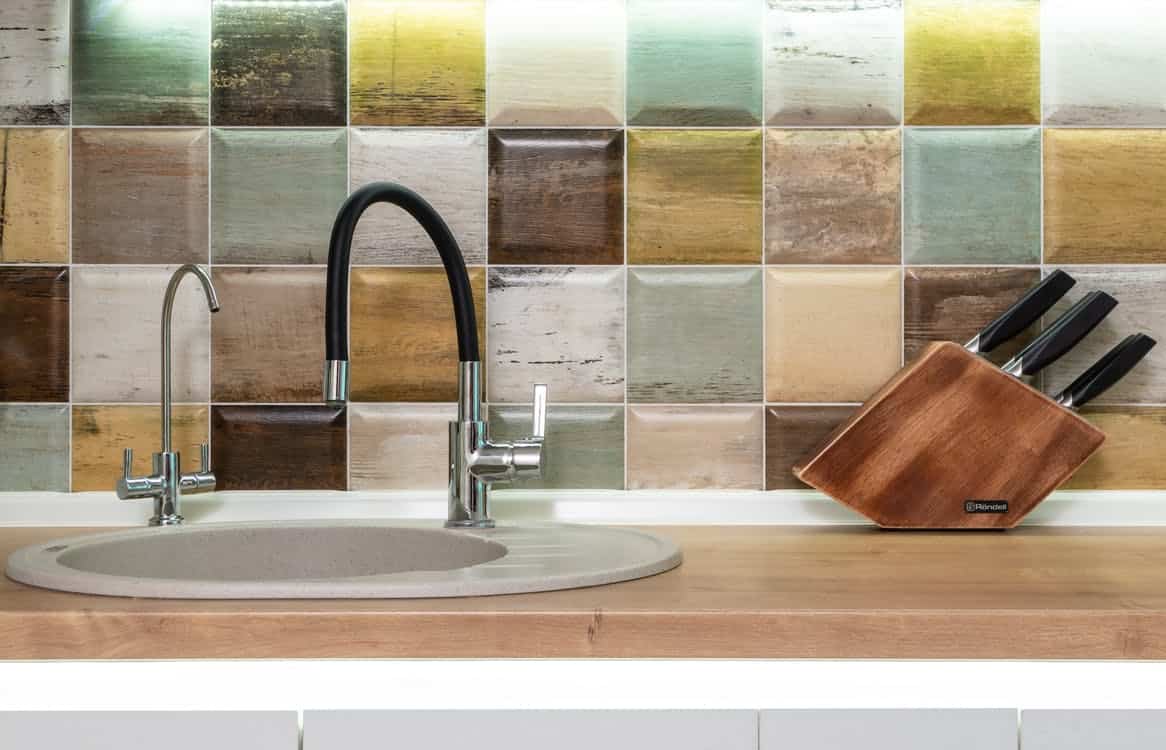The sphere of home amusement has significantly evolved throughout the years. The progression from the early years of vinyl records, cassette tapes, and cable TV to the modern age of smart home ecosystems exemplifies the dramatic shifts that have been made in media consumption. The changes in entertainment systems have not only influenced our media consumption patterns and social interactions but also have impacted our home designs and ways of living. This composition intends to delve into this intriguing evolution, providing a perspective on how home amusement systems have adjusted to our constantly shifting lifestyles and technological progressions.
Let's get started!
The Pre-digital Era: The Nostalgic Years of Analog
If we look back to a few decades ago, the concept of recreation was substantially more straightforward yet communal.
1. Radios: The Dawn of Home Entertainment

Image credit: edmondhistory.org
Radios were the first commercially available forms of home entertainment, introduced in the 1920s. They quickly became a household staple, offering families access to news, music, and serialized stories. The radio played a significant role in shaping public opinion and disseminating important information, especially during times of crisis. The impact of radio on society was monumental, as it brought people together and provided a platform for voices that otherwise would not have been heard.
2. Televisions: The New Frontier
Television sets, introduced in the late 1930s, became increasingly popular in the 1950s as models became more affordable. The advent of color television in the 1960s further revolutionized this medium, making it a central part of family life and shaping public opinion on a grand scale. Television became the go-to source for news, recreation, and educational content, significantly influencing culture and society.
Families would assemble in the living room to tune into television shows that aired at fixed times. Missing an episode meant having to wait for reruns. VHS tapes and Beta cassettes allowed some flexibility, but their capacity and lifespan were limited. While the options were fewer, this era was characterized by a sense of togetherness.

Image credit: newsweek.com
Movie nights necessitated planning, and music listening was an activity rather than a background filler. The simplicity and constraints of the era also fueled creativity, with children often inventing games and adults engaging in hands-on hobbies and crafts.
Digital Transformation: The Age of Convenience
As the calendar turned into the 21st century, a technological revolution led by the internet and digital media formats reshaped the recreation world. DVDs, offering superior video quality and extra features, quickly rendered VHS obsolete. Flat-panel televisions became the norm, taking up less space and providing better picture quality.
1. The Rise of Streaming Platforms
The high-speed internet was, however, the true game-changer. Streaming platforms like Netflix, Hulu, and Amazon Prime, via best Reuters for streaming, have revolutionized media consumption. The convenience of watching anytime, anywhere, has made these services incredibly popular, leading to a decline in traditional TV viewership and a rise in binge-watching culture.

Image credit: theconversation.com
Streaming services have also led to the development of original content, providing viewers with a plethora of previously unavailable options, with platforms like Spotify and Apple Music transforming music and offering virtually endless libraries of tracks and curated playlists.
The Rise of Home Theaters

Image credit: businessinsider.com
Home theaters have gained immense popularity in recent years. Technological advances have made what was once a luxury accessible to the average homeowner. Some people even convert unused spaces, such as basements or garages, into state-of-the-art home theaters. A crucial aspect of setting up a home theater in such areas is ensuring good acoustics and security.
For this, a well-insulated and secure door system is essential. If you're considering such a project, look for a garage door repair company. They can provide specialized advice on door systems with excellent insulation and security features.
Key Components of a Home Theater:
- Acoustic panels for sound insulation.
- High-definition screen or projector.
- Smart lighting for mood-setting.
- Surround sound system.
- Comfortable seating.
Video Games: The Interactive Frontier
Video gaming has also evolved from a niche subculture to a mainstream form of home entertainment, thanks partly to internet connectivity. Consoles like the PlayStation and Xbox became multi-functional devices of high performance that serve as media hubs, allowing users to watch movies, listen to music, and browse the internet in their gaming rooms.
Online multiplayer gaming introduced a novel social dimension to the activity. Not only could you compete with friends, but you could also make new acquaintances and even engage in collaborative storytelling through role-playing games. This sense of community has given rise to eSports, where video gaming competitions attract audiences that rival traditional sports.
The Integrated Home Entertainment Ecosystem
Today's home entertainment is not limited to a screen or speakers; it is an integrated part of our smart homes.
1. Voice Activated Controls

Image credit: dakotatv.com
Voice-activated controls have added a new layer of convenience to home entertainment systems. You can control various aspects of your recreation setup with simple voice commands through smart speakers like Amazon's Alexa or Google Assistant, from changing channels to adjusting your home's volume levels, lighting, temperature, and security features.
Integrating voice-activated controls with smart home ecosystems paves the way for more advanced and user-friendly recreation solutions. Meanwhile, advancements in Virtual Reality (VR) and Augmented Reality (AR) are laying the groundwork for truly immersive experiences, turning our living rooms into personal cinemas or gaming arcades.
2. Smart Door Systems
Advanced door systems can now integrate with smart home hubs, allowing you to secure your home without leaving your seat. This is especially useful when you're engrossed in a movie and don't want to pause to check if you've locked the garage door. Features include remote locking and unlocking, notifications for security breaches, and energy-efficient mechanisms.
The Social Dynamics and Instant Gratification
On-demand media has granted us unprecedented control and fractured communal viewing experiences. Now, it's common for each family member to engage with different content on separate devices. Moreover, the rise of social media has shifted discussions about movies and TV shows from living rooms to virtual platforms. Hashtags, memes, and trending topics have replaced the water-cooler conversations that once helped build a sense of community around shared media experiences.
The Impact on Traditional Media

Image credit: scotwork.co.nz
The popularity of streaming services has led to a decline in cable TV subscriptions and an increase in original content production by streaming platforms. This has created a competitive landscape, forcing traditional broadcasters to adapt their strategies. Cable companies, for example, now offer bundled services, including internet and phone, to retain a customer.
Gazing Into the Future
AI and machine learning advancements are poised to make our recreation experiences more personalized and interactive. Imagine your home system recommending a movie based on your mood, sensed through biometric data. Or think about AR technology turning your living room into an interactive game board. As display technology advances, we may even see the phasing out of physical screens in favor of holographic displays or direct neural interfaces.
Frequently Asked Questions on Home Entertainment
a) What is meant by home entertainment?
Home entertainment refers to various media and activities designed for personal or family enjoyment within the home setting. This encompasses everything from watching television and streaming movies to listening to music and playing video games.
Over the years, technological advancements have transformed recreation from simple, communal experiences around a single TV set to highly personalized, on-demand digital options. Smart home integrations and the advent of Virtual Reality and Augmented Reality add further dimensions, turning our living spaces into integrated recreation ecosystems offering increasingly immersive experiences.
b) What are home entertainment devices?
Home entertainment devices are electronic gadgets designed to provide multimedia experiences within the comfort of one's home. These range from traditional equipment like televisions, DVD players, and sound systems to modern smart devices such as streaming sticks, smart TVs, and gaming consoles.
These devices allow users to watch movies, listen to music, play video games, and even access the internet. Increasingly integrated with smart home systems, they can often be controlled via voice commands or mobile apps, offering a convenient, personalized, and immersive experience. The evolution of these devices reflects broader technological trends and changing consumer preferences.
Conclusion
The evolution of home entertainment systems is a testament to human ingenuity and adaptability. From the simple radios of the past to the complex smart home ecosystems of today, we have come a long way. As technology advances, the future of recreation looks promising, with more integrated and user-friendly systems on the horizon. With the integration of smart technologies, even aspects like home security are becoming part of our recreation experience, making it a holistic approach to modern living.













